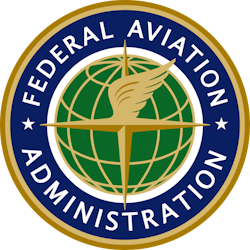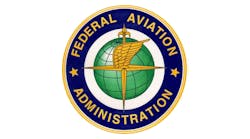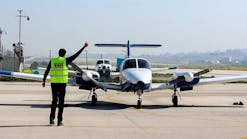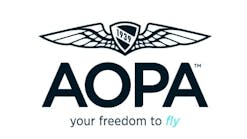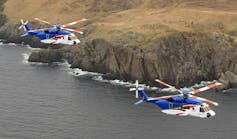Prior to the Jan. 5 mid-flight dislodging of a Boeing 737 MAX 9 door plug, the safety management processes and effectiveness of Boeing Commercial Airplanes were under review. A final report from that review is now available. In total, an expert panel selected by the FAA identified 27 findings, then made associated recommendations to improve safety processes.
The focus of the review was safety culture, safety management systems (SMS) and Organization Designation Authorizations (ODA), and other topics of concern relating to the safety of the flying public.
According to a summary of the panel’s work:
- The panel observed a safety culture disconnect between Boeing’s senior management and other members of the organization. Interviewees, including ODA Unit members, also questioned whether Boeing’s safety reporting systems would function in a way that ensures open communication and non-retaliation. The panel also observed inadequate and confusing implementation of the components of a positive safety culture.
- Boeing SMS procedures are not structured in a way that ensures all employees understand their role in the company’s SMS. The procedures and training are complex and in a constant state of change, creating employee confusion. The panel also found a lack of awareness of safety-related metrics.
- ODA unit management restructuring decreased opportunities for interference and retaliation against unit members, but still allows opportunities for retaliation to occur, particularly regarding salary and furlough ranking. This influences the ability of ODA unit members to execute their delegated functions effectively.
The panel also found issues at Boeing that affect aviation safety, which include inadequate consideration of human factors commensurate to their importance to aviation safety, and a lack of pilot input in aircraft design and operation.
The panel, solicited and selected by the FAA, convened March 1, 2023.
Congress mandates expert panel review of certain holders of FAA-issued ODAs. The authority to do so is found in the 2020 Aircraft Certification, Safety, and Accountability Act.
The scope of the review in this instance was limited to Boeing Commercial Airplanes, a business unit of The Boeing Company, which was granted four ODA types: Major Repair & Alternation, Production Certificate, Supplemental Type Certificate and Type Certificate.
Materials reviewed by the panel included more than 4,000 pages of Boeing documents, seven surveys, in addition to more than 250 interviews and meetings with Boeing employees across six company locations.
After a review, the panel is required to recommend to the FAA administrator suggested actions to address any deficiencies found by the panel.
In addition to its findings, the panel made 53 recommendations to Boeing.
The FAA said Feb. 26, “We will immediately begin a thorough review of the report and determine next steps regarding the recommendations as appropriate. We will continue to hold Boeing to the highest standard of safety and will work to ensure the company comprehensively addresses these recommendations.”
The panel was not directed to investigate specific aircraft incidents or make recommendations based on specific incidents. However, the report notes, “On several occasions during the expert panel’s activities, serious quality issues with Boeing products became public. These quality issues amplified the expert panel’s concerns that the safety-related messages or behaviors are not being implemented across the entire Boeing population.”
Boeing has been directed to review the report recommendations and develop an action plan that “includes a milestone-based approach that comprehensively addresses each recommendation.” That plan, including implementation dates, is to be shared with the FAA.
An acknowledgments section in the report says the report was made possible with the cooperation of the FAA, The Boeing Company, American Airlines, Bell Textron and the University of Southern California Viterbi School of Engineering.
